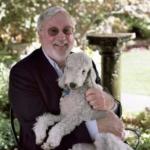John Batchelor and I discussed sickle cell disease (SCD), a genetic disorder predominantly affecting individuals of African descent, including African-Americans, of whom there are about 100,000. I described how a mutation in hemoglobin that causes the substitution of a single amino acid in the protein results in red blood cells adopting a crescent or sickle shape, which leads, in turn, to severe complications such as clotting, organ damage, strokes, and premature death.
My personal awareness of SCD's genetics dates back to my undergraduate years at MIT, because one of my professors had described the molecular basis of SCD; and I recounted my experience as a medical resident with a 20-year-old patient who endured a multitude of complications. However, gene therapy using CRISPR technology, a gene-editing technique, offers a potential revolutionary cure. I explained the intricate process of inserting a normal hemoglobin gene into a patient's hematopoietic cells and reintroducing those transformed cells back into the patient, In a 30-patient clinical trial, the gene therapy treatment relieved symptoms and significantly improved patient outcomes in 29 of them.
We delved into the specifics of a CRISPR-based therapy called Exa-cel. The FDA sought the advice of an external advisory committee about the likelihood of potential off-target genetic changes, and the overall risks and benefits of the product. The consensus of the advisors was that, despite uncertainties, the potential benefits far outweighed the risks.
Although the cost of this therapy will be high, possibly over a million dollars per patient, this investment is justified, both in terms of improving the lives of patients with sickle cell disease and reducing the huge expenses over patients' lifetime to treat the frequent crises and decompensations.
Here is the link to our audio conversation.
Addendum: The FDA announced on December 8: "The U.S. Food and Drug Administration approved two milestone treatments, Casgevy and Lyfgenia, representing the first cell-based gene therapies for the treatment of sickle cell disease (SCD) in patients 12 years and older. Additionally, one of these therapies, Casgevy, is the first FDA-approved treatment to utilize a type of novel genome editing technology, signaling an innovative advancement in the field of gene therapy."
My conversation with Mark Hahn started by addressing the recent state of San Francisco, noting the temporary cleanup for the Chinese president's visit and expressing skepticism about the city's return to its former glory due to progressive policies.
We also spoke about the remarkable advancements in medical treatments, focusing on CRISPR technology. I provided some insights into its two components: a DNA segment that sets the target and enzymes that cut the DNA for modification. The discussion centered on using CRISPR for treating sickle cell anemia in adults and children, highlighting the revolutionary potential of this technology. I detailed the recent approval of CRISPR for sickle-cell disease and beta-thalassemia in the UK and mentioned its potential applications for other genetic diseases, including hereditary (genetic) blindness and deafness in children.
We discussed the challenges of CRISPR therapies, including the high costs associated with testing, evaluation, and extended hospital stays. Mark thought that CRISPR costs might decrease over time.
Shifting gears to lung cancer awareness month, I pointed out the treatability of cancer when detected early and the application of CRISPR in cancer treatment, specifically CAR-T therapy for various cancers. I emphasized the promising nature of CRISPR technology for genetic diseases like cystic fibrosis and muscular dystrophy and its potential application in diseases like AIDS and COVID-19.
For the curious, I suggested researching CRISPR (and other scientific and medical subjects) through reliable sources like NIH, CDC, the Mayo Clinic, and, of course, the ACSH, rather than some of the dubious sources found online.
Here is the link to my discussion with Mark Hahn
Looking for a bit more? Here are ACSH’s three latest articles on Sickle Cell Disease.
A Revolutionary New Gene Therapy Treatment For Sickle Cell Anemia Is Imminent
Calculating Hope: Sickle Cell Disease
Sickle Cell Anemia: Bad Luck and Simple Chemistry




